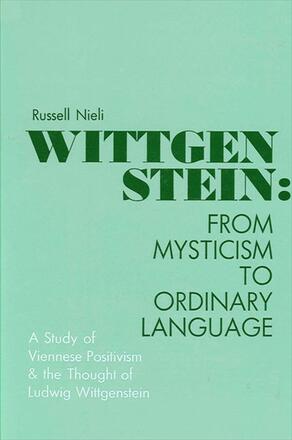
Wittgenstein: From Mysticism to Ordinary Language
A Study of Viennese Positivism and the Thought of Ludwig Wittgenstein
Alternative formats available from:
Description
Wittgenstein: From Mysticism to Ordinary Language presents the Tractatus as a work of mystic theology intended to direct the reader to a transcendental plane from which human existence can be viewed from the divine perspective. More than any other work on Wittgenstein, this study integrates text material with personal biographical information, especially information dealing with his spiritual and psychological states. The result is a fresh, coherent, and extremely illuminating picture of Wittgenstein, successfully avoiding the pitfalls of either psychological reductionism or unfaithfulness to the text. It is bold without being reckless, passionately argued without being doctrinaire, and makes a very powerful and persuasive case for its main thesis.
Reviews
"Russell Nieli's book constitutes an extraordinary contribution to scholarship, unique in many of its insights. For the first time, we come to understand core perspectives of Wittgenstein which some of his most influential interpreters misunderstood. No other book on Wittgenstein has helped me to understand half as well Wittgenstein as a human being, a thinker, and a man in his history and culture. None is as reliably right in its interpretations. None is as clearly written while attending to the richness of its subject matter. " — Manfred Halpern, Princeton University
"This is a very original approach to Wittgenstein that throws considerable new light both on Wittgenstein himself and on the whole of those tendencies in modern Anglo-American philosophy that stem from his influence. Nieli's hypothesis is both extremely insightful and well argued. " — Eugene Webb, University of Washington
"It treats one of the two most influential philosophers of the twentieth century in a genuinely fresh way. To that I can add that Nieli's novel assessment is on balance the right one. " — Huston Smith, Hamline University